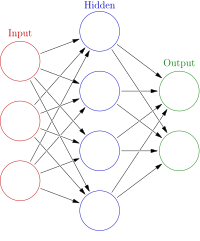
Framework for Automated Generation of Constructible Steel Erection Sequences Using Structural Information of Static Indeterminacy Variation in BIM
Sign Up to like & getrecommendations! Published in 2020 at "Ksce Journal of Civil Engineering"
DOI: 10.1007/s12205-020-0163-6
Abstract: For effective pre-construction process, engineers create a 4D building information model (BIM). However, the rich information associated with the creation of the 4D BIM leads to manual effort. Past studies explored methods that automatically generate… read more here.
Keywords: sequences using; steel erection; static indeterminacy; bim ... See more keywords

Generation of Tunable Stochastic Sequences Using the Insulator-Metal Transition.
Sign Up to like & getrecommendations! Published in 2022 at "Nano letters"
DOI: 10.1021/acs.nanolett.1c04404
Abstract: Probabilistic computing is a paradigm in which data are not represented by stable bits, but rather by the probability of a metastable bit to be in a particular state. The development of this technology has… read more here.
Keywords: stochastic sequences; generation tunable; sequences using; tunable stochastic ... See more keywords

TreeCluster: Clustering biological sequences using phylogenetic trees
Sign Up to like & getrecommendations! Published in 2019 at "PLoS ONE"
DOI: 10.1371/journal.pone.0221068
Abstract: Clustering homologous sequences based on their similarity is a problem that appears in many bioinformatics applications. The fact that sequences cluster is ultimately the result of their phylogenetic relationships. Despite this observation and the natural… read more here.
Keywords: phylogenetic trees; using phylogenetic; biological sequences; sequences using ... See more keywords

Classification of bacterial plasmid and chromosome derived sequences using machine learning
Sign Up to like & getrecommendations! Published in 2022 at "PLOS ONE"
DOI: 10.1371/journal.pone.0279280
Abstract: Plasmids are important genetic elements that facilitate horizonal gene transfer between bacteria and contribute to the spread of virulence and antimicrobial resistance. Most bacterial genome sequences in the public archives exist in draft form with… read more here.
Keywords: plasmid; machine learning; sequences using; chromosomal plasmid ... See more keywords

Synthesis and cloning of long repeat sequences using single-stranded circular DNA
Sign Up to like & getrecommendations! Published in 2023 at "Frontiers in Bioengineering and Biotechnology"
DOI: 10.3389/fbioe.2023.1115159
Abstract: Non-coding repeat expansion causes several neurodegenerative diseases, such as fragile X syndrome, amyotrophic lateral sclerosis/frontotemporal dementia, and spinocerebellar ataxia (SCA31). Such repetitive sequences must be investigated to understand disease mechanisms and prevent them, using novel… read more here.
Keywords: single stranded; long repeat; repeat; sequences using ... See more keywords